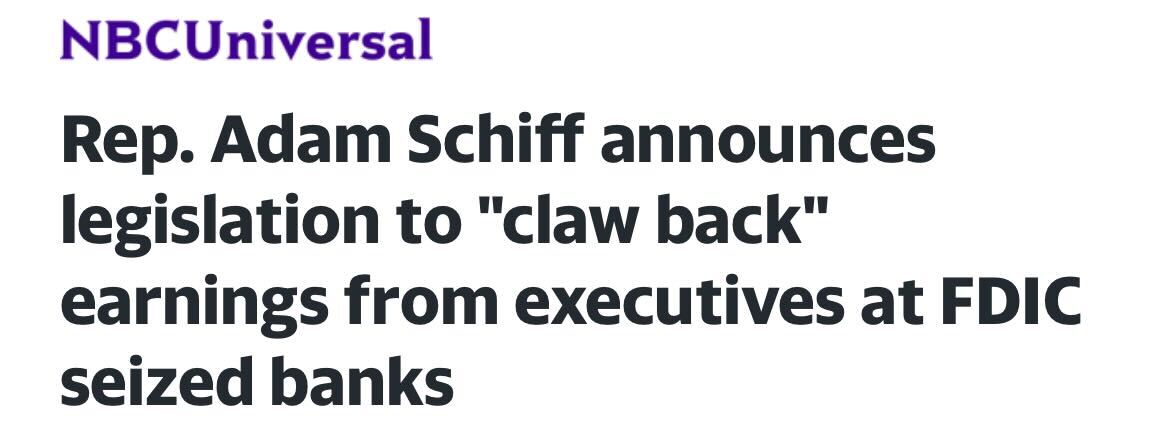|
|
Hey John —
Last week, a very important California bank went bust, threatening the paychecks of thousands of California workers who were not even aware that their payroll was being handled by the bank. The failed financial institution was a vital part of the entrepreneurial ecosystem in the tech sector, helping to fund a host of start-ups that fueled the state’s robust economy. That bank was, of course, the Silicon Valley Bank (SVB), and its collapse sent shockwaves through the financial system.
Those shockwaves continue to rattle markets across the country and also helped bring down yet another institution, Signature Bank.
How we got here is the result of Congressional malfeasance, poor regulatory oversight, and terrible bank practices.
First Congress. After the last financial meltdown, Congress passed regulatory reform which strengthened oversight of banks that were “too large to fail,” and which included capital requirements, stress testing of institutions, and other reforms to ensure the government would never again have to bail out large financial institutions.
A decade later, during the Trump Administration, Congress loosened regulation of some of these banks, especially banks like SVB. I opposed this partial repeal of Dodd-Frank protections, but it passed nonetheless, with overwhelming Republican support, and with the support of a sizable number of Democrats as well.
As a result, when SVB executives decided to maximize their short-term profits by investing in a lot of long-term, fixed-rate instruments, regulators were not on top of the risks this posed at a time of rapid interest rate hikes. Regulators also paid insufficient attention to the fact that a huge percentage of depositors had amounts over $250k in their accounts and therefore were not fully insured against a run on the bank.
This combination of poor oversight and greedy management of the bank proved catastrophic.
Over the last few days I have been in meetings with FDIC and Treasury officials, along with many of my colleagues in the California delegation — first trying to understand how to protect innocent workers, and then brainstorming on how to protect our economy in the future from other such failures.
Over the weekend, I started drafting a bill to respond, in particular to bank executives who traded stock and received bonuses in the run-up to the bank’s failure. And just hours ago, Senator Richard Blumenthal and I introduced a big new bill to claw back all profits from stock sales made by bank executives in the weeks before a bank collapse and to take back any bonuses they received. We must eliminate the incentive for bank executives to put their own compensation ahead of the interests of their depositors and the country. Clawing back their ill-gotten gains is the best way to do so.
| ADD YOUR NAME |
In the lead-up to the bank’s failure, its CEO Greg Becker sold a reported $3.6 million in SVB stock, profiting off the demise of the very bank he managed. Another executive sold $575,000 worth of stock the same day. My bill would return this money to the FDIC insurance fund to pay back depositors and ensure paychecks are delivered.
Second, we need to repeal S. 2155, legislation pushed by Big Banks to lessen regulations put in place by Dodd-Frank. I voted against S. 2155 back in 2018, which raised the asset limit at which a bank was subject to regular stress testing up to $250 billion. That in turn exempted a lot of medium-sized and regional banks. This needs to be repealed.
Third, the Securities and Exchange Commission and potentially the Department of Justice need to investigate all of this mess. The timing of the stock sales and bonus payments to executives are suspect — at best.
Finally, we need to consider other systemic reforms to ensure that this doesn’t happen again and that workers whose companies rely on banks for their paychecks or their retirement planning aren’t put in the crosshairs by bad bank decisions.
| ADD YOUR NAME |
Thanks for reading this email, and for helping to protect consumers and the economy from another such trauma to our system.
— Adam
|



